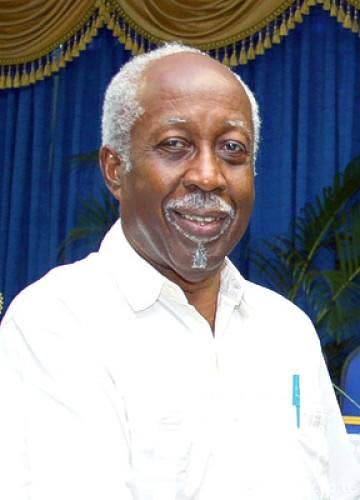A Ghana reminiscence

GOVERNANCE deficiencies, mindless political partisanship, and acidulous high-decibel public exchanges have been wearing me down. I’m tired, and I’ve decided to withdraw substantially from public involvement and commentary. I will concentrate on writing as many of my life’s recollections as I can before my final exit, which, at my age, cannot be distant.
An issue in the recent THA election campaign reminded me of an experience I had in Ghana nearly 20 years ago. And, although they are not related, that experience brought to mind another, also in Ghana, 50 years ago. First, the earlier event.
Conor Cruise O’Brien, that brilliant, maverick Irishman, who among other things was once vice-chancellor of Ghana University, had told me about a Ghanaian lady called Dumas living in Ada (pronounced “Ah-dah”), near the Ghana-Togo border. I was intrigued – a Ghanaian named Dumas? Haitian, yes, but Ghanaian? Years later, an old friend drove me to Ada.
We were quickly directed to Ms Dumas’s large old house on the seaside, with its expansive courtyard; she was at home. Two perfect strangers, we apologised for barging in on her, and I explained why we had come. Then in her 70s, she was the quintessence of charm. It turned out that her father was a Frenchman, a trader based in Togo, much sought after because of the high quality of the clothing material he would bring in. To this day, I’m told, Ghanaians place “Dumas cloth” at the top of their fabric preferences. Though born in Ada, Ms Dumas and her sister had grown up in France, where their father had taken them on his return home, and her English was very heavily French-accented. We had lunch with her, then accompanied her to the market. And it was there, shortly before we left to return to Accra, that she suddenly told me: “You look like my nephew. I’m certain we’re related.” (She had no children of her own.) I politely set aside the possibility, and thought that was the end of that. But it wasn’t.
Back in New York, where I was living then, I received a letter from her. To my everlasting astonishment, she wanted to leave her Ada property to me; she knew, she wrote, that she and I were of the same blood. Before replying, I consulted my Ghana friend. Take it, he said. But I felt I couldn’t. I hardly knew the lady, and, despite what she had said, there was no way I could be a member of her family. In any case, what would I be doing with a property in Ada? A foreigner, I had no connection to the area; I knew nobody there; I didn’t know the language or the culture. I wrote her back to decline, and suggested she leave the property to her nephew. No, she replied, it must go to you. I again declined, after which I never heard from her again.
Three decades after, on another visit to Ghana, I met the nephew. We certainly didn’t look alike – he was much larger than I, lighter-skinned, and with different features. I asked after the property. It had gone, he said. The Atlantic Ocean had developed new appetites. It had first swallowed the shore behind which the property had for so long stood, then the property itself. Mercifully, Ms Dumas had already left us.
My second experience comes out of that later visit, and it was the Tobago zipline issue that jogged my memory. The same friend who had driven me to Ada invited me back. I accepted; nearly 25 years had passed since I was last in Ghana. But whereas on previous occasions I had confined my activities to Accra and environs, this time I wanted to travel a bit in the interior.
I set off a few days after my arrival. One of the places I visited was the Kakuru National Park, which is slightly more than twice the size of Tobago, and where I did a canopy tour; I was told it was the only one in Africa. No zipping on a line, just walking (one person at a time) on a swaying, creaking bridge with a slatted wooden floor, and clutching the ropes on either side for balance and dear life. I did look down; the prospect of a fall of 360 feet was not appealing.
Substantial withdrawal, I said above, not total. I end with the zipline. I urge that one of the first orders of business of a newly-constituted THA must not be to complete the zipline project (which really means starting a new one at taxpayers’ further expense) but to investigate thoroughly what happened in the first place, and have the necessary action taken.


Comments
"A Ghana reminiscence"